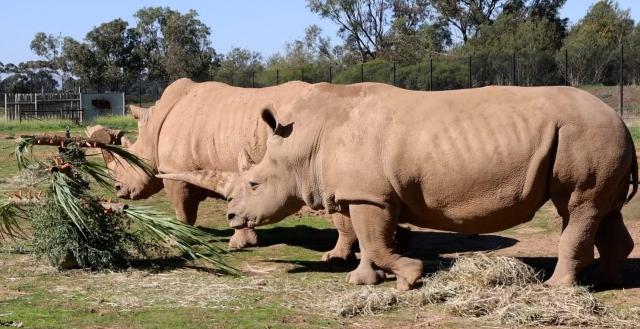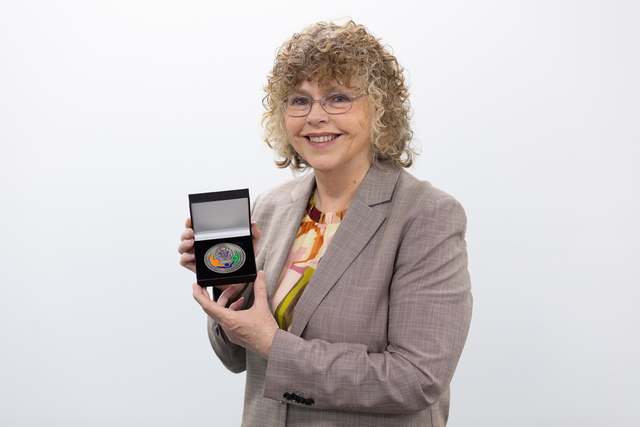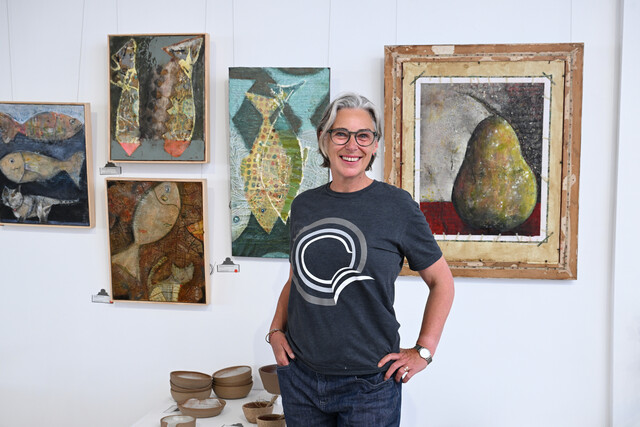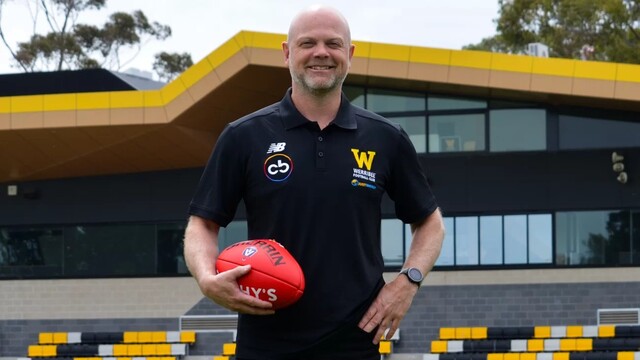Eye-drops can be difficult to administer to anyone, but when the patient is a two tonne rhinoceros, the degree of difficulty sky-rockets.
Thankfully for staff at the Werribee Open Range Zoo, their resident Southern white rhino Letaba has begun receiving them voluntarily.
The zoo’s savannah keeper Linda Gardiner said it’s the result of months of training and enticement.
“During the training, we encourage Letaba into the training yard with her favourite foods so that we can get a good look at her eye before we apply any treatment” said Ms Gardiner of the process involved in applying eye-drops and antihistamine cream to treat seasonal allergies.
She said the new approach had not only made life easier for staff, but more importantly, for Letaba herself.
“While we administer the drops and cream, Letaba has complete choice and control about when to leave, which is the philosophy behind all our healthcare training at the zoo.
The treatment has prevented her from getting sore eyes and she appears much more comfortable, which is fantastic to see.”
Like many humans, Letaba suffers from seasonal allergies which over summer required eye care every day.
Since then her condition has improved, meaning daily treatment is no longer needed, but Ms Gardiner said this could quickly change depending on the weather.
“We’re not sure if her eye dryness is caused by dust, pollen or grasses, so we will continue to work with Letaba to ensure she remains in peak health year-round,” Ms Gardiner said.
As well as eye-drops, Letaba’s training makes it easier for staff to conduct blood draws, skin checks and weight monitoring, part of the zoo’s ongoing attempt to make care as nonintrusive as possible.
Southern white rhinos are endangered, with illegal poaching and habitat destruction resulting in less than 20,000 remaining in the wild.







